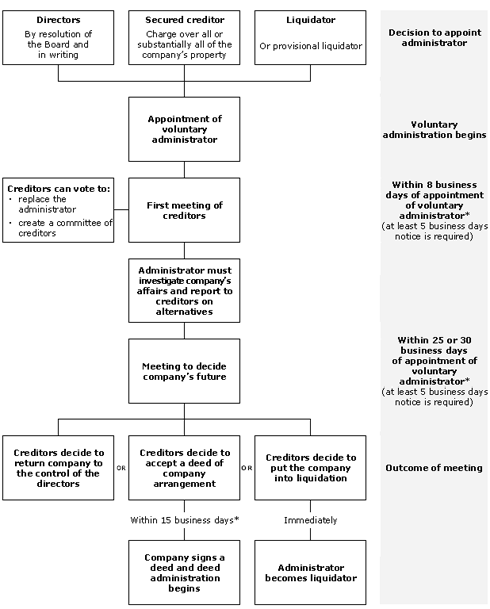Voluntary Administration
Voluntary Administration
What is a voluntary administration?
Voluntary administration is an insolvency procedure where the directors of a financially troubled company or a secured creditor with a charge over most of the company’s assets appoint an external administrator called a ‘voluntary administrator’.
The role of the voluntary administrator is to investigate the company’s affairs, to report to creditors and to recommend to creditors whether the company should enter into a deed of company arrangement, go into liquidation or be returned to the directors.
A voluntary administrator is usually appointed by a company’s directors, after they decide that the company is insolvent or likely to become insolvent. Less commonly, a voluntary administrator may be appointed by a liquidator, provisional liquidator, or a secured creditor.
What is the voluntary administration process?
*Unless the court allows an extension of time.
What is the effect of a voluntary administration?
The effect of the appointment of a voluntary administrator is to provide the company with ‘breathing space’ while the company’s future is resolved. While the company is in voluntary administration:
- unsecured creditors can’t begin, continue or enforce their claims against the company without the administrator’s consent or the court’s permission
- owners of the property (other than perishable property) used or occupied by the company, or people who lease such property to the company, can’t recover their property
- except in limited circumstances, secured creditors can’t enforce their charge over company property
- a court application to put the company in liquidation can’t be commenced, and
- a creditor holding a personal guarantee from the company’s director or another person can’t act under the personal guarantee without the court’s consent
Contact Guy Baxendale for a confidential and obligation-free chat about your business needs.
Mobile: 0404 544 919
Phone: 02 8315 2146
E: guy@gbaxendale.com.au


